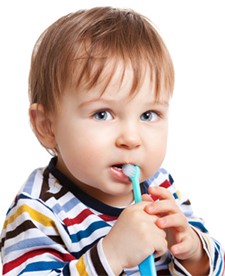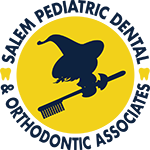
How to Care for Your Infant’s Oral Health
Teeth or no teeth, your infant’s oral health should always be a top priority. But, how are you supposed to care for your baby’s teeth? There are numerous steps to take and each serves an important purpose in preparing your baby for a future smile he or she will be glad to show off.
First: Caring for Your Baby’s Gums
Although your baby is born without visible teeth, it’s still important to care for his or her gums. If you don’t, you’ll leave harmful bacteria behind that can damage teeth as they begin to emerge.
You won’t need a toothbrush or toothpaste for gum care. Instead, you can use a soft, slightly moistened cloth or gauze to wipe down your baby’s gums, especially after feedings and prior to bedtime.
Second: Caring for Your Baby’s Teeth
Your baby’s teeth will begin to emerge from the gums at around 6 months of age, at which point you’ll need to begin using a toothbrush for cleaning. It’s best to purchase a toothbrush with soft bristles, a small head, and a large handle to make it easier for you to clean and more comfortable for your baby.
You should start with very limited amounts of toothpaste (fluoride-free) and, as more teeth emerge, you can increase the amount. This will gradually familiarize your child with the taste and texture of toothpaste.
Third: Visiting the Dentist
It’s vital that you schedule your baby’s first dental appointment before his or her first birthday or within 6 months of his or her teeth appearing.
This will allow the dentist to identify potential problems caused by injuries, illnesses, or development complications. If issues are identified, the dentist can treat them or refer you to a paediatrician should something go beyond the teeth’s surfaces.
General Preventative Dental Care for Your Infant
Visiting the dentist early is one type of preventative care for your infant. There are additional things that you can do to reduce the likelihood of cavities as teeth continue to emerge:
- Only put formula, breast milk, and water in baby bottles to avoid “baby bottle tooth decay,” and be sure to clean gum/teeth after the consumption of formula or breast milk as both contain sugar.
- Decrease your child’s sugar consumption, particularly between meals, because sugar feeds bacteria that can attack your baby’s teeth.
- Never put anything sweet on your baby’s pacifier to encourage him or her to use it.
Early Oral Health Sets Your Baby Up for a Beautiful Smile
Baby teeth are functionally important during childhood and also serve a critical role as place holders for adult teeth. By caring for them properly from the very beginning, you can promote oral health and create a great foundation for a bright, beautiful future smile.
Sources:
Basic Dental Care – Infants and Children. (2014, November 14). Retrieved June 2, 2015, from http://www.webmd.com/oral-health/tc/basic-dental-care-infants-and-children
Caring for Your Baby’s Teeth. (2014, November 6). Retrieved June 2, 2015, from http://www.webmd.com/oral-health/dental-health-dentures
Share
SEP
2018

About the Author:
Since 1972, Salem Pediatric Dental & Orthodontic Associates has provided comprehensive preventive and therapeutic oral health care for infants and children through adolescence including those with special health care needs. We proudly serve the communities of Salem, Lynn, Peabody, Danvers, Marblehead, Swampscott, Beverly, and many more.